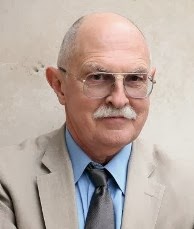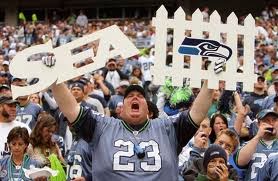It's another "who will win" weekend in America. As we approach basketball conference championships, March madness and the Super Bowl fades into the distance, we can gather round our hearths and TVs to
watch the big Oscar shootout. It's a well used cliché to compare our love of sport to religion but it applies at times to other big, competitive award-events contest like the Oscars and of course political contests (stay tuned).
People have noted some reasons for the Sport-Religion connection. Writing in the Christian Century 30 years ago, Joseph L. Price said,
"[T]here is a remarkable sense in which the Super Bowl functions as a major religious festival for American culture, for the event signals a convergence of sports, politics, and myth. Like festivals in ancient societies, which made no distinctions regarding the religious, political and sporting character of certain events, the Super Bowl succeeds in reuniting these now disparate dimensions of social life."
Part of this fusion is opportunistic timing. Important games are played on the weekend when there is time away from work...Especially the Lord's Day for the Superbowl (and I guess Oscar to cross into celebrity). It may be part of this replacement of communal ritual that people seek. Part of it bubbles up in the language of metaphor. There are "Hail Mary passes". We all understand some of this ritualistic language. We come together over it.
Some type of transcendent work day devotion is evident both sports and religion and there is a flavor of heartland nationalism to both. Things shut down and the cultural hive-mind gets focused on the Event and its culture. For football it can be the comfort of buffalo wings and grilled alternatives, neighbored by some dips and potables. It's probably not a festal offering, but people may have their own way of helping their "team" win. Different ethnic groups wear food as an outward sign as readily as a Yamaka. And here is atways hyphenated American comfort food like pizza. And what could make the Oscars more American Gothic than serving pizza during the event and at the event!
Speaking of winning, sure events like Olympics has this nationalist "civil religious" feeling
of affirmation and energy elevation too. It's a bit like a patriot war with cultural rituals to bind us to the team. Randall Collins gets at some of the underlying emotional factors that bind people to both sport and religion in Interaction Ritual Chains. A starting premise is that human beings are Emotional Energy seekers. That goes back to our social evolution. Having evolved in small groups we are hungry for emotional group and personal experience. In this light human activity involving social life and energy tends to be part of what Collins calls an interactive ritual chain. Collins description of ritual chains is pretty simple. They involve:
- feelings of belonging (yeah team),
- a sense of co-presence (we are with you),
- a moral feeling (atheists are evil and on the wrong side of issues),
- membership symbols (got my redskins hat), and
- barriers to outsiders (no Muslims need cheer for my team).
The next time you watch a Redskins game think about these chained feelings. But think also more broadly that history and symbols of the United States have resulted in a sort of pseudo-state religion - a civic religion that includes sports and cultural heroes/celebrities in some type of ritual celebrating space along with our historical figures.
And there is other factors that strengthen the ritual chain bonds in a civic/civil religion and its celebrated events. All such games are spectacles like a 4th of July fireworks celebration and have themes that we see in mythical heroic stories. They go back to favorite players and plays of prior games. Sure we have Washington and Jefferson as historical players. In the sports celebration think Super Bowl highlights or a Duke player scoring the winning basket in the last 3 seconds. BTW, the theme for this year's Oscars? Heroes...
These group stories include the ideas of sacrifice and toil with potentially glorious payoffs of conquest and victory. Well Bush's wars in the Middle East didn't have those payoffs, but there was certainly an effort to tell the story in heroic terms of sacrifice as part of a civil religion fusion. Our troops were just like our revolutionary war patriots...Only in the Middle East. Yeah for democracy, whether you asked for our version or not.
These fusions of victory are often celebrated in cinema as well as half-time shows. And of course certain participants like quarterbacks take on heroic, demi-god properties. That was true of Denver's Peyton Manning. The focus on definable heros can distort are reasoning in a team sport, but this idea of uncertainty and testing of one's betting hunches is part of the attraction to the event. We like the betting aspect of it. It's almost a moral conviction. And team sport events are pretty
hard to predict accurately as are wars. Luck and chance has so much to do with games and these are hard to factor in. As an example some of the folks who predicted the results of the national election in 2012 were predicting a toss up in the Super Bowl ("software projects Seattle winning 54.8 percent of the time with an average score of 23.8 to 21.5"). Election prediction champ Nate Silver picked the Seahawks as Super Bowl winners, but the margin was slight.
Perhaps the chance of a first play mistake may have tipped the odds unpredictably. This idea of a gamble is part of the attraction of these events and developing a winning bracketology becomes addictive behavior. See my earlier blog on the psychological biases in the art of Bracketology.
So sure, it is fun to celebrate a cultural event pick out winners for the Oscar, as if this is based on some obvious merit that every voting body can agree on. Except the Academy is quite elite and different from the national population and has Hollywood factors at play ("I just don't like him.") Rating talent for March Madness (next in our Civic ritual chain Celebration?) is probably more grounded, but the bracketology of it remains quite a distance from a science. Luck and chance are there and thus there is an opportunity for people to feel that invisible deterministic connection with events. We will be part of the game and make our team win through faithful devotion. We will participate in the addictive rituals of a civic-sports religion. The trickle down probably helps keep some Americans in the religious ritual circle. Pass the popcorn.





No comments:
Post a Comment